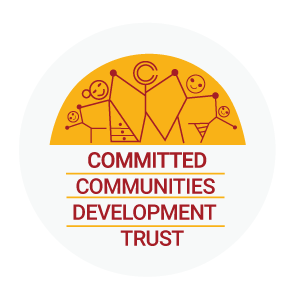Our Health and Nutrition team spent the day in deep discussions with other NGO partners who have been working collaboratively over the last three years to reduce malnutrition rates in high-burden ICDS projects across four districts of Maharashtra. Implementing an Urban Nutrition Initiative (UNI) — to reduce malnutrition by reaching out to children in the age group of 0-2 years, pregnant women and lactating mothers — comes with its share of challenges. CCDT’s partners VACHAN (Nashik), Amhi Amchya Arogyasaathi (Nagpur), Foundation for Mother and Child Health (Bhiwandi) and ISSUE (Nagpur), shared learnings and successful strategies gleaned from implementing the program in their respective districts.
The discussion was focused on the issues faced in implementing the project and its approaches. Misconceptions and lack of awareness among pregnant women and lactating mothers was the common concern for all. Partner organizations shared how they leveraged community approaches to enhance demand generation among pregnant women and lactating mothers. They also shared a common challenge of increasing male participation at community events such as ‘Mata Melavas’.
Anganwadi Sevikas and Traditional Birth Attendants are oftentimes the first points of contact between the primary target audience and the public health system. Given the key role that they play in identifying Severely Acutely Malnourished, Moderately Acutely Malnourished or at-risk children and at-risk pregnant women and lactating mothers, the program included training and capacity building programs for this audience segment. Partner organizations shared how this capacity building intervention rendered the program more sustainable and will allow them to exit out of the community more easily.
Mr. Sharad from Foundation for Mother and Child Health (FMCH), Bhiwandi shared how enhanced levels of awareness among project community members had resulted in the early identification of high-risk factors, which in turn produced better maternal and child health indicators.

Mr.Sharad from FMCH- sharing the organization’s program achievements over three years of implementation
Another success factor that all partner organizations shared was the noticable Increase in demand for ICDS services across project communities. Women were demonstrating greater initiative to learn about health and nutrition through mothers’ group meetings.
Ms. Vijaya from Amhi Amchya Arogyasaathi (Nagpur) shared that the percentage of children with normal growth in the project area had increased by 16.51% during the course of the project’s three-year implementation period.
UNI has successfully reached out to the 9,106 pregnant women, 11,017 lactating mother and 25,861 children below two years of age in Anganwadi centers across eight high-burden ICDS projects.


Recent Comments